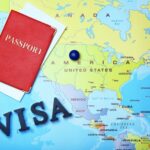What’s a Travel Advisory and Why Should You Care?
Ever planned a dream trip, only to discover a last-minute hiccup—like a safety concern or travel restriction? That’s where travel advisories swoop in to save the day! They provide essential information about safety, health, and political stability, ensuring travelers know what to expect before stepping on a plane.
Whether you’re jetting off to a tropical island or navigating an urban jungle, understanding travel advisories is key to a smooth, hassle-free experience. Let’s unpack the nitty-gritty details!
What Is a Travel Advisory?
In simple terms, a travel advisory is a government-issued statement that warns travelers about risks in specific destinations. These risks could range from political unrest and natural disasters to health hazards or crime.
Key elements often covered in travel advisories:
- Safety alerts: Political conflicts, terrorism, or crime hotspots.
- Health concerns: Outbreaks, vaccination requirements, or healthcare availability.
- Natural disasters: Earthquakes, hurricanes, or extreme weather conditions.
- Travel restrictions: Entry bans, visa issues, or transport disruptions.
Governments and organizations, like the U.S. Department of State or the World Health Organization (WHO), frequently update these advisories to keep travelers informed.
Types of Travel Advisories
Not all travel advisories are created equal. They vary in severity, depending on the situation. Let’s break them down:
- Exercise Normal Precautions
- No immediate threats, but travelers should stay aware of their surroundings.
- Ideal for low-risk destinations.
- Exercise Increased Caution
- Minor risks like petty theft or localized unrest.
- Recommended for slightly higher-risk regions.
- Reconsider Travel
- Significant safety or health risks, such as ongoing conflicts or disease outbreaks.
- Do Not Travel
- Severe threats, often involving war zones or extreme natural disasters.
How to Access Travel Advisories
So, where can you find reliable travel advisory updates? Here are some top resources:
- Government websites:
- U.S. Department of State (travel.state.gov)
- UK Foreign Travel Advice (gov.uk/foreign-travel-advice)
- Australian Smart Traveller (smartraveller.gov.au)
- Health-focused organizations:
- Centers for Disease Control and Prevention (cdc.gov)
- World Health Organization (who.int)
- News outlets and apps:
- Google News Alerts
- Travel-specific apps like TripIt and Smart Traveler.
Tips for Staying Safe While Traveling
Here’s the good news: you can navigate most risks with the right preparation. Check out these tips to stay safe on your journey:
1. Research Before You Go
- Read travel advisories for your destination.
- Look into local customs, laws, and health concerns.
2. Keep Emergency Contacts Handy
- Save the local embassy’s contact details.
- Share your itinerary with family or friends.
3. Invest in Travel Insurance
- Cover unexpected cancellations, medical emergencies, or lost luggage.
4. Pack Smart
- Carry essentials like a first-aid kit, necessary medications, and copies of your passport.
- Don’t forget travel adapters and chargers!
5. Stay Informed On the Go
- Sign up for travel alerts.
- Use reliable apps to track updates during your trip.
Travel Advisory FAQs
- What’s the difference between a travel advisory and a travel alert?
Travel advisories are general safety guidelines for a destination, while travel alerts address specific events like natural disasters or protests. - Should I cancel my trip if there’s a travel advisory?
Not necessarily! Assess the level of risk and consider alternate destinations or travel insurance. - How often are travel advisories updated?
They’re updated as new information arises, sometimes daily. Always check just before departure. - Can travel advisories affect my insurance coverage?
Yes, most insurance policies won’t cover you if you ignore a “Do Not Travel” advisory. Always read the fine print! - Are travel advisories the same worldwide?
Nope! Different countries may issue varying advisories for the same destination based on their citizens’ safety.
Why Travel Advisories Matter
Imagine traveling without a clue about potential risks. Yikes, right? Travel advisories empower you to:
- Avoid dangerous situations.
- Understand local rules and regulations.
- Travel with confidence, knowing you’re prepared.
Being proactive is the name of the game. Plus, the extra prep time ensures you’re not caught off guard!
Summary: Knowledge is Power
A travel advisory isn’t just a buzzword—it’s your ticket to smarter, safer travel. From understanding safety risks to navigating health precautions, these advisories are a traveler’s best friend.
So, whether you’re planning a family vacation or a solo adventure, don’t leave without checking the latest travel updates. Pack wisely, stay informed, and explore the world with peace of mind!
Authoritative Links:
- U.S. Department of State: https://travel.state.gov
- Centers for Disease Control and Prevention: https://www.cdc.gov
- World Health Organization: https://www.who.int
- UK Foreign Travel Advice: https://www.gov.uk/foreign-travel-advice
- Australian Smart Traveller: https://www.smartraveller.gov.au







